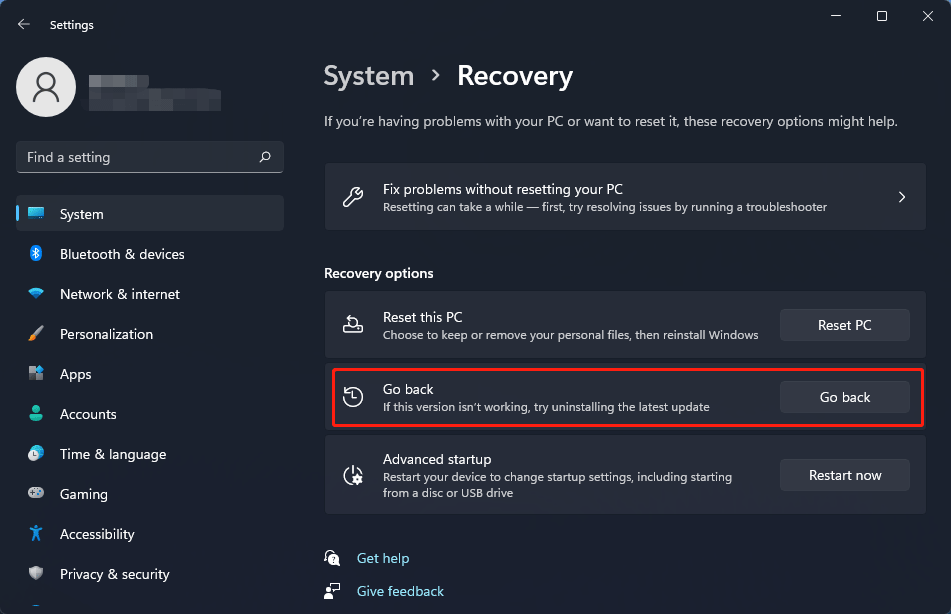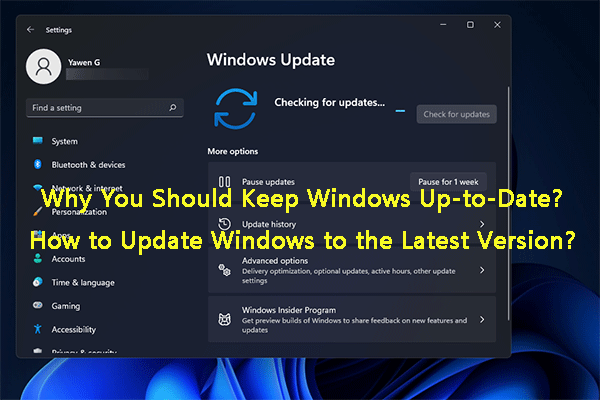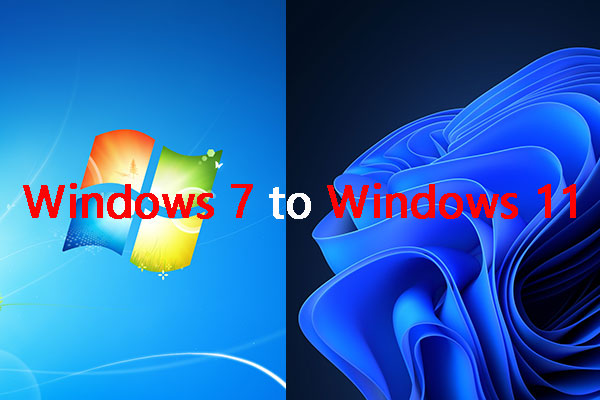Can unsupported computers get Windows 11 updates? Microsoft said unsupported devices are not entitled to updates. But the result shows that these devices receive the first patch update. Now, you can read this MiniTool post to learn useful and related information.
MiniTool Power Data Recovery TrialClick to Download100%Clean & Safe
Can Unsupported Computers Get Windows 11 Updates?
Windows 11 has been released for a while. As a new Windows version, Microsoft issues new hardware and software requirements for it. According to the official statement, only eligible computers can upgrade to Windows 11 via Windows Update. And Microsoft also said that even if you have installed Windows 11 on an unsupported computer, the device will not receive Windows 11 cumulative updates.
Due to this, many users abandon the idea of installing Windows 11 on their unsupported computers. However, can unsupported computers get Windows 11 updates?
Microsoft has released the first patch update on October 12, 2021. The result shows that unsupported computers also get this Windows 11 update. This seems to be different from what Microsoft said. Maybe for legal protection, Microsoft states the unsupported devices weren’t entitled to updates.
But does this mean that unsupported devices can always get Windows 11 cumulative updates? Not really. Microsoft can close the update entry of Windows 11 on unsupported devices at any time. You can keep attention.
Like other versions of Windows, Microsoft releases Windows 11 patch updates to bring security updates and fixes. To protect the computer and data on it, users wish to keep their Windows 11 up-to-date. If unsupported computers can get Windows 11 updates (that is, they can keep their Windows 11 computers up-to-date), more and more users may choose to install Windows 11.
Should I Upgrade to Windows 11 on an Unsupported Computer?
It is possible to install Windows 11 on an unsupported device. But you should think twice before you do it. Why? According to the statement from Microsoft, more compatibility issues and bugs are likely to happen on unsupported devices. If your unsupported computer is not an important device, you can install Windows 11 to have a try.
How to Install Windows 11 on an Unsupported Computer?
There are many ways to install Windows 11. For example, you can go to Windows Update to check if Windows 11 is available and then upgrade Windows 10 to Windows 11. On the other hand, you can also use Windows 11 Installation Assistant or Windows 11 Media Creation Tool to install Windows 11 on your computer. If you have a Windows 11 ISO file, you can also directly install Windows 11 using the ISO file. However, these ways are not suitable for unsupported devices.
If you are using a computer that is not eligible for Windows 11, you need to create a Windows 11 installation USB flash drive and then install Windows 11 using the installation USB. To protect your computer data, you’d better back up your data using a professional Windows data backup software like MiniTool ShadowMaker.
How to Roll back to Windows 10?
If you don’t want to use Windows 11 on your computer for some reason, you can choose to go back to Windows 10. If you have installed Windows 11 within 10 days, you can use the Go back feature in Settings > System > Recovery to make your device go back to the previous Windows 10 version by uninstalling the latest update.

If you have run the latest Windows 11 for more than 10 days, you need to use other methods to go back to Windows 10. If you have created a system restore point, you can perform a system restore. You can also clean install Windows 10 on your computer.
Bottom Line
The current situation shows that unsupported devices can get Windows 11 updates. But the situation after that still needs attention. If you want to install Windows 11 on an unsupported computer, you can try the method mentioned in this post. Should you have other related issues, you can let us know in the comments.
![How to Recover Lost and Deleted Files in Windows 11? [6 Ways]](https://mt-test.minitool.com/images/uploads/2021/08/how-to-recover-deleted-files-windows-11-thumbnail.jpg)

![How to Download & Install Windows 11 on Your Computer? [5 Ways]](https://mt-test.minitool.com/images/uploads/2021/08/how-to-download-windows-11-thumbnail.jpg)
